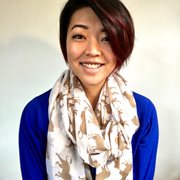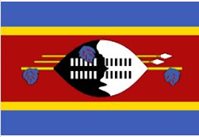Celia Fung
 Celia graduated Summa Cum Laude from Lehigh University in Bethlehem, PA, with a B.S. in Biology and a minor in Psychology. While at Lehigh, she volunteered at the Bulembu clinic in Swaziland during the summer months of 2013 and 2014 through the Grant for Experiential Learning in Health. She also supported Senator Lawrence of Grand Bassa County, Liberia, in fundraising to mobilize community health workers and provide medical supplies during the Ebola Outbreak in 2014-2015.
Celia graduated Summa Cum Laude from Lehigh University in Bethlehem, PA, with a B.S. in Biology and a minor in Psychology. While at Lehigh, she volunteered at the Bulembu clinic in Swaziland during the summer months of 2013 and 2014 through the Grant for Experiential Learning in Health. She also supported Senator Lawrence of Grand Bassa County, Liberia, in fundraising to mobilize community health workers and provide medical supplies during the Ebola Outbreak in 2014-2015.
After graduating, Celia received a President’s Scholar award for a fully-funded year of HIV research in the Department of Sociology and Anthropology at Lehigh. In 2015-2016, she was a Fulbright Student researcher in Mbabane, Swaziland, where she studied the feasibility of a stool-based qRT-PCR assay as a diagnostic tool in pediatric and HIV-co-infected TB cases.
Celia is a Dean’s Scholar enrolled in the Global Health Pathway at the University of Rochester School of Medicine and Dentistry and is a recipient for a three-year HIVMA Medical Student Award. She is also a Center for AIDS Research (CFAR) Community Advisory Board member, Community Outreach Chair and Homeless Response Team Coordinator for the University of Rochester Street Outreach, a coordinator for the University of Rochester School Physical Program and a tutor for the Refugee Student Alliance.
 Project: "Evaluation of DNA Methylation as the Repressive Means of Helminth Induced Immune Perturbation"
Project: "Evaluation of DNA Methylation as the Repressive Means of Helminth Induced Immune Perturbation"
June 5, 2017 - July 17, 2017
Swaziland
What does the Kean Fellowship mean to you?
The Kean Fellowship has given me the opportunity to return to Mbabane, Swaziland, to a community and a project I care deeply about. The chance to continue research in a high-burden setting like Swaziland allows me to work directly with the patients most affected by tropical infectious diseases. As an aspiring physician, interacting with patients is an honor and an essential part of my training. This Fellowship will also allow me to continue under the mentorship of researchers who share my passion for infectious disease and have been an important part of my development as a physician-scientist.
What do you anticipate learning?
I will be conducting RT-PCR epigenetic and immunological studies to elucidate how helminth-induced host epigenetic changes result in alterations in TB-specific immune phenotype. Specifically, I will use methyl-sensitive and methyl-dependent endonuclease degradation to evaluate the methylation state of 94 immune genes. These results will be compared to the TB-specific percent and MFI immune phenotypes of paired cells. Through this experience, I hope to advance critical skills in translational research in high-burden settings, epigenetic methodologies and bioinformatics.
What interests you about tropical medicine and what problems are you interested in solving?
My fascination with microbiology long preceded my aspiration to pursue a career in medicine. I was mesmerized by the microbes’ unique personalities, special mechanisms by which they escape host defense and their extraordinary means of propagating genetic material. As I gained a deeper understanding of infectious agents in the context of healthcare, it became clear that tropical medicine represents one important intersection between science and social justice. Much is known about how many infectious diseases are transmitted and can be prevented or cured. Yet, my experiences in Swaziland showed me that the burden of communicable diseases disproportionately falls on the most vulnerable. Cycles of structural violence in areas burdened with infectious diseases results in countless preventable deaths. My hope is that by focusing on vaccine improvement and vaccine program implementation, I can help reduce the burden of infectious disease in areas most affected.